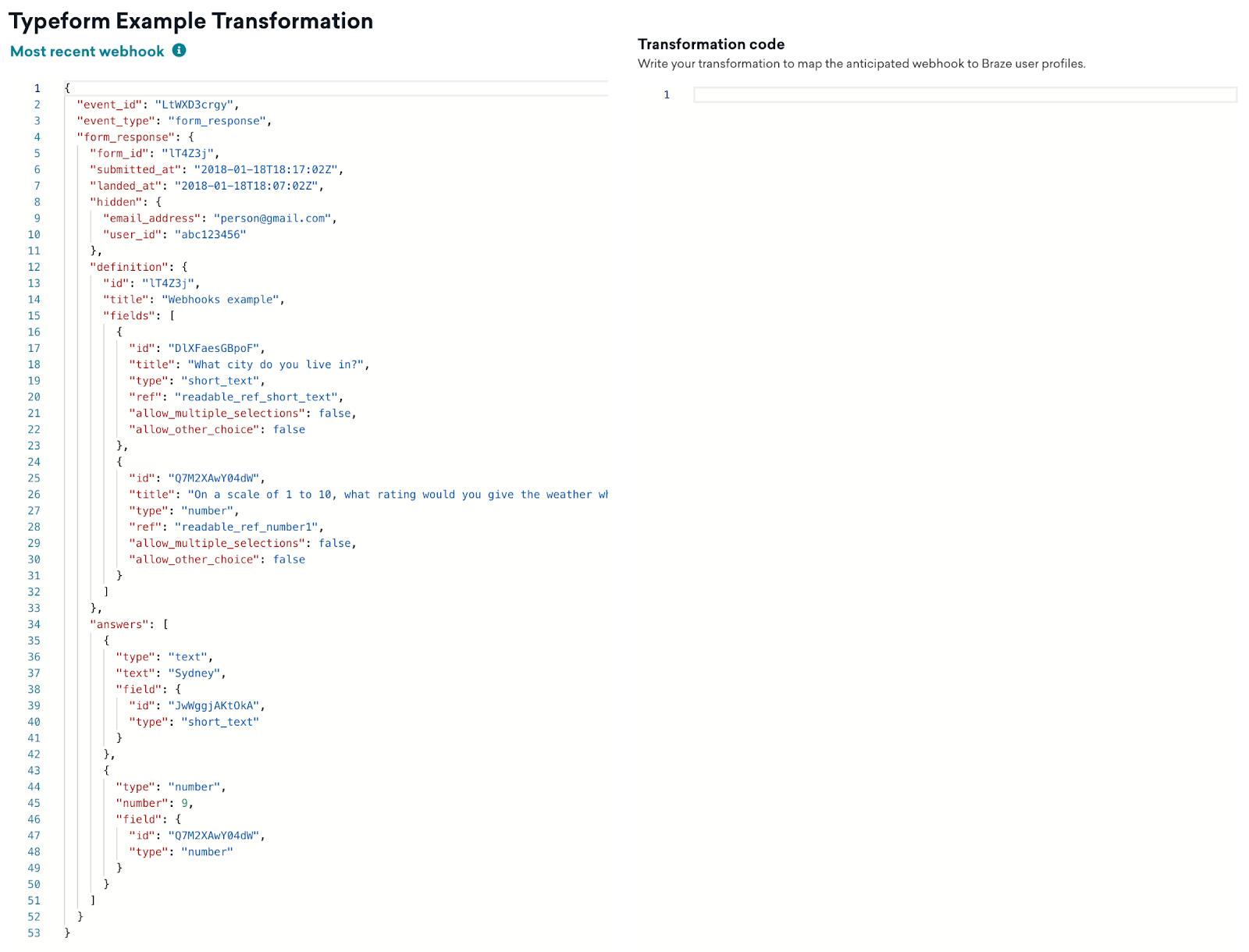Data Transformation use cases
Consider the following possible use cases with Braze Data Transformation and a combination of webhooks from the example external platforms.
Generating leads
You host a lead generation Typeform form on your website. When new users fill out this form, you can:
- Create new users in Braze.
- Add them to one of your Braze email lists.
- Sync some of their responses as custom attributes in Braze, as their answers are valuable first-party data that can power personalized messaging experiences for future use.
Opening service tickets
When customers open customer service tickets on a platform like Zendesk, you can:
- Write a custom event in Braze when a Zendesk ticket is created.
- Write a custom event with event properties in Braze when a negative CSAT rating is provided to Zendesk.
Integrating with Braze
Braze has an integration available with Iterate, a customer insights and survey platform. With Data Transformation, you can save multiple survey responses under one nested custom attribute, instead of to the existing integration that saves multiple custom attributes.
Example transformation code
Consider this sample payload from Typeform, a survey platform, which sends whenever a survey response is received.

This use case takes survey answers as attributes and writes an event to indicate that the survey was completed:
1
2
3
4
5
6
7
8
9
10
11
12
13
14
15
16
17
18
19
20
21
return {
"attributes": [
{
"email": payload.form_response.hidden.email_address,
"_update_existing_only": true,
"home_city": payload.form_response.answers[0].text,
"home_weather_rating": payload.form_response.answers[1].number
}
],
"events": [
{
"email": payload.form_response.hidden.email_address,
"_update_existing_only": true,
"name": "weather_survey_completed",
"time": new Date(),
"properties": {
"form_id": payload.form_response.form_id
}
}
]
}
This advanced use case builds on the basic use case by introducing an if statement to categorize the user in one of the answers.
1
2
3
4
5
6
7
8
9
10
11
12
13
14
15
16
17
18
19
20
21
22
23
24
25
26
27
28
29
30
31
let nps_category;
let nps_number = payload.form_response.answers[1].number;
if (nps_number < 7) {
nps_category = "Detractor";
} else if (nps_number == 7 || nps_number == 8) {
nps_category = "Passive";
} else if (nps_number > 8) {
nps_category = "Promoter";
}
return {
"attributes": [
{
"email": payload.form_response.hidden.email_address,
"_update_existing_only": true,
"home_city": payload.form_response.answers[0].text,
"home_weather_NPS_category": nps_category
}
],
"events": [
{
"email": payload.form_response.hidden.email_address,
"_update_existing_only": true,
"name": "weather_survey_completed",
"time": new Date(),
"properties": {
"form_id": payload.form_response.form_id
}
}
]
};
 Edit this page on GitHub
Edit this page on GitHub